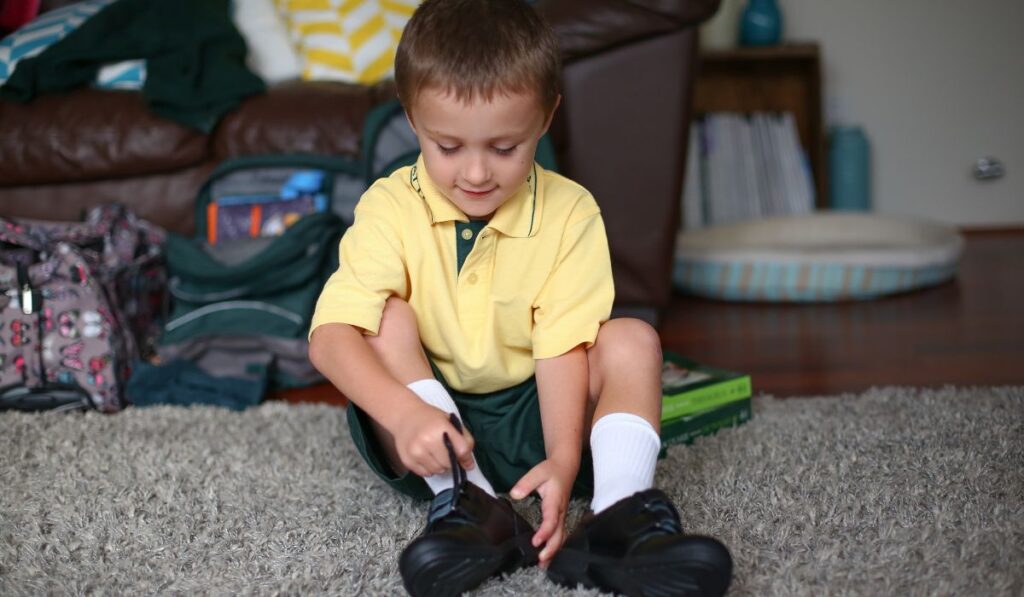As children prepare to enter school, many parents wonder: Is my child ready for this big transition? School readiness is more than knowing letters and numbers—it includes essential social, emotional, behavioral, and communication skills that help a child succeed in the classroom. For children with developmental delays or behavioral challenges, Applied Behavior Analysis (ABA) therapy can play a transformative role. With the right support at home and a strong partnership with ABA therapists, children can build the confidence and skills they need to thrive in school.
Understanding School Readiness
School readiness refers to a child’s ability to meet the demands of a structured classroom environment. This includes:
-
Following directions
-
Sitting for group activities
-
Taking turns and sharing
-
Communicating needs
-
Regulating emotions and behavior
-
Demonstrating early academic skills (colors, shapes, numbers, letters)
For children receiving ABA therapy, readiness also involves reducing behaviors that may interfere with learning and increasing functional independence.
Why School Readiness Starts at Home
While schools play a major role in shaping a child’s development, the foundation for learning starts at home. Parents and caregivers are a child’s first teachers. Routines, expectations, and interactions at home influence how well a child adapts to school. When families partner with ABA therapists, they gain guidance on how to support their child’s learning every day—in natural settings.
By integrating ABA strategies at home, parents can help their child practice school-readiness skills well before the first day of school arrives.
The Role of ABA Therapy in School Preparation
ABA therapy is a research-based approach that focuses on understanding and improving behaviors that impact daily functioning. For school readiness, ABA therapists create individualized goals based on a child’s current abilities and the skills they will need in a classroom.
Key areas of focus include:
1. Communication Skills
Whether a child uses verbal language, signs, or augmentative communication, ABA therapists work to improve expressive and receptive communication. Skills such as asking for help, answering questions, and following classroom instructions are practiced regularly.
2. Daily Living Skills
Independence in daily tasks—like using the bathroom, eating lunch, putting on a backpack, and following routines—can make a huge difference in school success. ABA therapy breaks down these tasks into teachable steps and reinforces progress.
3. Social Interaction
School involves constant social interaction—sharing toys, waiting turns, and participating in group activities. ABA therapists use play-based learning and structured interactions to teach these skills in both one-on-one and peer settings.
4. Behavioral Readiness
Disruptive behaviors, difficulty transitioning between activities, and lack of focus can be barriers in a classroom. ABA therapists assess the function of challenging behaviors and teach replacement behaviors that are more appropriate and effective.
5. Academic Foundations
While ABA is not a tutoring service, it can help establish pre-academic skills like attending to a task, matching, sorting, and responding to questions. These foundational behaviors are critical for learning in a school environment.
How Parents Can Support School Readiness at Home
Parents play a vital role in generalizing ABA strategies into the home. Here’s how they can support their child’s development:
1. Consistent Routines
Establish predictable daily routines that mirror a school day. Include scheduled mealtimes, play, learning time, and bedtime. Routines help children feel secure and reduce anxiety about transitions.
2. Practice School-Like Activities
Engage your child in activities that reflect school structure: sitting at a table for a short lesson, reading a story together, cleaning up toys, or doing simple worksheets. These build familiarity with classroom expectations.
3. Encourage Independence
Let your child do age-appropriate tasks on their own: dressing, brushing teeth, or getting their backpack ready. Reinforce their efforts and gradually increase complexity.
4. Play and Social Interaction
Set up playdates or engage in role-play to model social interactions. Teach your child to greet others, take turns, and express feelings appropriately.
5. Work with Your ABA Therapist
Stay in close communication with your ABA provider. Ask questions, attend training sessions, and request strategies to use at home. Your participation reinforces your child’s therapy and ensures consistent learning.
Benefits of Parent-Therapist Collaboration
The most successful ABA outcomes happen when there is a strong partnership between therapists and families. Benefits include:
-
Tailored Strategies: Therapists can personalize interventions to align with your home environment and cultural preferences.
-
Faster Progress: Skills learned in therapy sessions are strengthened through consistent reinforcement at home.
-
Confidence for Parents: Families gain valuable tools to manage behavior and support learning in real time.
-
Better School Transition: When home and therapy are aligned, the shift to a structured classroom becomes smoother.
Preparing for the Transition to School
As the school year approaches, your ABA team can help create a transition plan. This may include:
-
Classroom Visits: Gradual exposure to the new environment.
-
Social Stories: Visual narratives that explain what to expect at school.
-
Teacher Collaboration: Sharing insights and strategies with your child’s future educators.
-
Behavior Support Plans: Outlining proactive supports and responses to behaviors.
These preparations ease anxiety and boost your child’s readiness to engage in the classroom.
Looking for autism ABA therapy in Atlanta, GA? Aim Higher ABA provides personalized, evidence-based support to help children build communication, social, and daily living skills. Our caring team offers in-home and community-based services tailored to your child’s needs.
Conclusion
Starting school is a big milestone for any child—and for children who benefit from ABA therapy, it’s a journey best taken with support and preparation. By partnering with ABA therapists and implementing strategies at home, parents can build a strong foundation for their child’s school success.
Remember, school readiness isn’t just about academics. It’s about confidence, communication, independence, and social connection. With the right tools and teamwork, your child can walk into their classroom ready to learn, grow, and shine.

